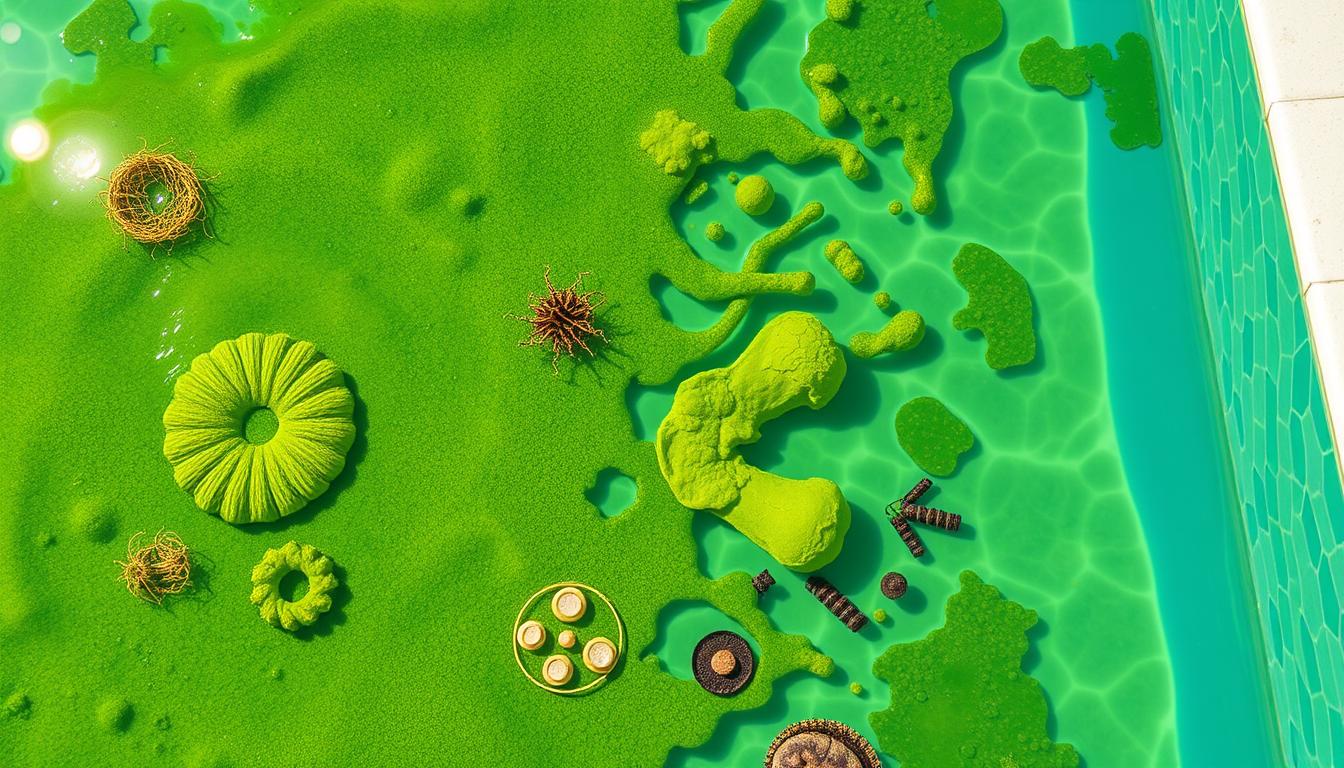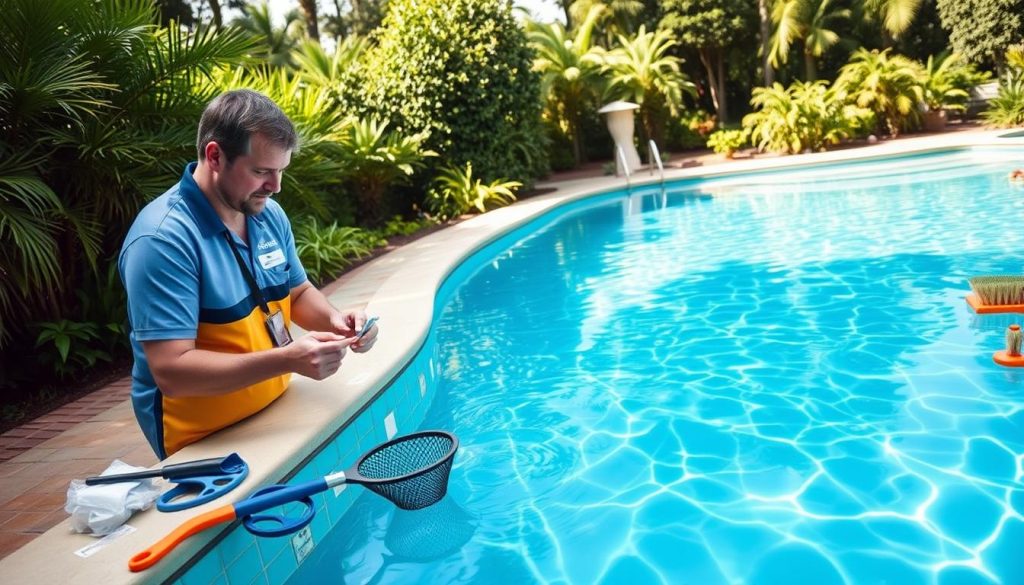
Summer brings the joy of swimming in backyard pools. But green, murky water can quickly spoil the fun. Pool algae may seem harmless, but it can pose health risks. Algal blooms not only look unappealing but can also be dangerous.
Picture your kids running to the pool, only to find a green, uninviting surface. Their disappointment is clear. You might worry about the hidden risks in the algae-infested waters. It’s vital to understand the health impacts of pool algae.
Let’s explore the world of pool algae and its potential hazards. We’ll look at different types of algae that can invade pools. We’ll also discuss the causes of algae growth and its effects on our health.
Understanding these issues helps us keep our pools safe. We can take steps to prevent and address algal blooms. This knowledge ensures our pools remain enjoyable for everyone throughout the season.
Key Takeaways
- Pool algae can cause various health issues, including skin irritations, respiratory problems, and gastrointestinal illnesses.
- Children and individuals with weakened immune systems are most susceptible to algae-related health risks.
- Different types of algae, such as green, blue-green, and black algae, can invade swimming pools.
- Regular pool maintenance, including proper chemical balance and filtration, is crucial in preventing algal blooms.
- Seeking professional help is recommended for persistent algae growth or recurring chemistry imbalances.
Understanding Harmful Algal Blooms in Swimming Pools
Harmful algal blooms (HABs) in pools can be dangerous. They pose significant health risks to swimmers. Recognizing signs of algae growth and preventing it ensures safer swimming environments.

What Causes Algae Growth in Pools?
Several factors contribute to algae growth in swimming pools. Warm water, slow-moving water, and high nutrient levels stimulate algae growth. Climate change may worsen HABs in pools.
Regular monitoring helps control these factors. Proper pool maintenance reduces the chances of algae-related illness. This includes good circulation, filtration, and chemical balance.
Types of Algae Found in Swimming Pools
Various algae types can grow in swimming pools. Cyanobacteria, or blue-green algae, are most common in fresh water. They produce toxins that pose significant health risks.
Green algae and mustard algae also grow in pools. They’re less harmful than cyanobacteria but still affect water quality. Effective pool maintenance prevents all types of algae growth.
| Algae Type | Characteristics | Health Risks |
|---|---|---|
| Cyanobacteria (Blue-Green Algae) | Bloom-forming, can produce toxins | Skin irritation, gastrointestinal issues, respiratory problems |
| Green Algae | Common in pools, forms green patches on surfaces | Generally less harmful, but can contribute to poor water quality |
| Mustard Algae | Yellow or brown in color, grows on pool surfaces | Can cause skin irritation and create slippery surfaces |
Understanding different pool algae types helps prevent their growth. Regular monitoring and proper maintenance are crucial. Swift action when algae are detected minimizes risks and prevents algae-related illness.
Health Risks Associated with Pool Algae Exposure
Pool algae can cause health issues ranging from mild discomfort to severe illness. Poisoning occurs when people contact or ingest water with harmful algal blooms. The severity depends on algae type, toxin concentration, and exposure duration.
Algae contamination hazards are especially risky for children, the elderly, and those with health conditions. These groups are more vulnerable to the harmful effects of algal toxins.
Symptoms of Illnesses Caused by Pool Algae
Common symptoms include nausea, vomiting, and diarrhea. Algal toxins can also cause headaches, muscle weakness, and seizures in severe cases. Respiratory problems and skin irritation may occur with prolonged contact.
Seek medical help if you experience these symptoms after swimming in algae-filled pools. Quick action is crucial for proper treatment.
Long-Term Health Effects of Algal Toxins
The immediate effects of pool algae poisoning are well-known. However, long-term consequences of chronic, low-level exposure remain unclear. Some studies suggest repeated exposure may damage the liver and increase cancer risk.
More research is needed to confirm links between algal toxins and specific health issues. To stay safe, maintain pools properly and avoid visibly contaminated water.
Populations Most Vulnerable to Pool Algae-Related Illnesses
Children face higher risks due to their size and time spent in water. The elderly and those with weak immune systems are also more susceptible.
People who often use contaminated water or eat seafood from affected areas may face long-term health risks. Regular exposure to algal toxins can lead to serious health problems.







